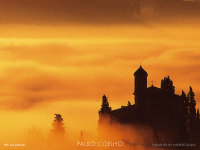Fiction
Fiction is an imaginative form of narrative, one of the four basic rhetorical modes. Although the word fiction is derived from the Latin fingo, fingere, finxi, fictum, "to form, create", works of fiction need not be entirely imaginary and may include real people, places, and events. Fiction may be written or oral or may be presented as a film or in theater or on radio or television. Although not all fiction is necessarily artistic, fiction is largely perceived as a form of art or entertainment. The ability to create fiction and other artistic works is considered to be a fundamental aspect of human culture, one of the defining characteristics of humanity.
Elements of fiction
Even among writing instructors and bestselling authors, there appears to be little consensus regarding the number and composition of the fundamental elements of fiction. For example:
- "Fiction has three main elements: plotting, character, and place or setting." - Writer's Digest Handbook of Novel Writing, 1992
- "For writers, the spices you add to make your plot your own include characters, setting, and dialogue."
- "Contained within the framework of a story are the major story elements: characters, action, and conflict."
- " . . . I think point of view is one of the most fundamental elements of the fiction-writing craft . . ."
As stated by Janet Evanovich, "Effective writing requires an understanding of the fundamental elements of storytelling, such as point of view, dialogue, and setting." The debate continues as to the number and composition of the fundamental elements of fiction. [1]
